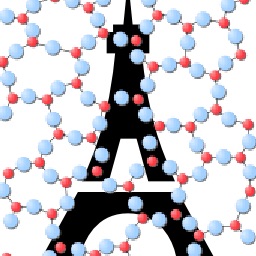Calcium nitrate: A chemical admixture to inhibit aggregate dissolution and mitigate expansion caused by alkali-silica reaction
Alkali-silica reaction (ASR) is a significant cause of the degradation of concrete structures. ASR results from the dissolution of reactive silicate aggregates and the subsequent formation of damaging, expansive ASR gels. Despite the prevalence of ASR, so far only lithium-based chemical admixtures have been shown to be successful in mitigating its deleterious effects. Herein, dissolved calcium nitrate (Ca(NO3)2: CN) is demonstrated to reduce ASR-induced expansion caused by the use of sodium borosilicate (NBS) glass as a model reactive aggregate. The significance of reductions of NBS-glass dissolution and mortar-bar expansion rates is discussed, with special focus on highlighting the mechanism by which calcium nitrate mitigates ASR, i.e., by the inhibition of aggregate dissolution. This study reveals a new and cost-effective pathway to suppress aggregate dissolution and ASR in concrete based on the dosage of soluble alkaline-earth additives.
